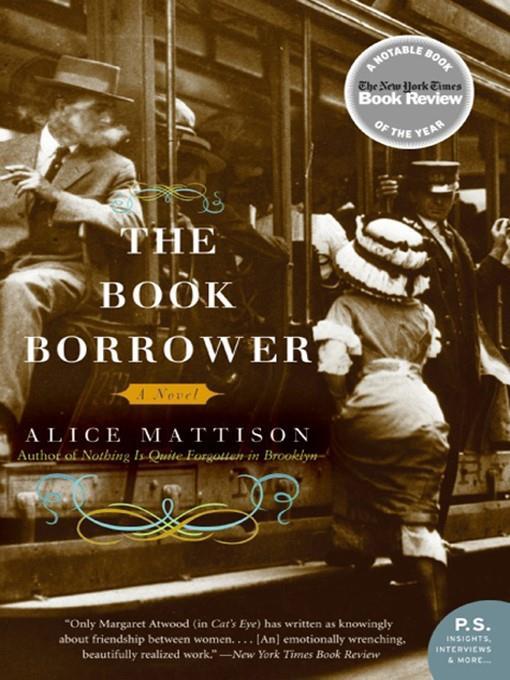
The Book Borrower
A Novel
کتاب های مرتبط
- اطلاعات
- نقد و بررسی
- دیدگاه کاربران
نقد و بررسی

October 4, 1999
The pleasures, intimacies, tensions and failures of female friendship frame this subtle, psychologically rich novel, which chronicles the volatile relationship between two women and highlights issues of loyalty, sacrifice and guilt. In brisk, energetic prose, Mattison (Hilda and Pearl) investigates the prickly territory between affection and unconscious jealousy, avowals of devotion and secret betrayals, commitment and selfishness. On the day in 1975 when they meet in a Boynton, Mass., playground with their respective young children, Deborah Laidlaw loans Toby Ruben Trolley Girl, a book about a tragic trolley-car accident that occurred in the town in 1920. Ample, embracing, generous Deborah is a Catholic earth mother. Ruben (she thinks of herself only by her surname) is a harder person, Brooklyn-born, rough-edged, subconsciously resentful, Jewish. Despite their apparent incompatibility and Ruben's competitive streak, the two women sustain a deep attachment over two decades, interrupted twice when Ruben causes Deborah grief (and her job) by denigrating her teaching ability (a profession they both share). But an essential affinity always draws them back together, and they debate existential questions in a quirky sort of verbal shorthand, until the day when Deborah declares to Ruben: "You have a kindness defect,'' and admits she's frightened of Ruben's harsh assessment of herself and others. Suddenly, Deborah's death in an auto accident and the reappearance of the book Ruben borrowed long ago (passages from which have been interspersed in the narrative) connect. Trolley Girl's protagonist--an unrepentant anarchist who caused the deadly accident when she was young--turns out to be an elderly sculptor already entwined in Ruben's life. Through her, Ruben achieves insights into the insidious ways unconscious anger can undermine relationships. Mattison constructs her layered plot with the skill of a gem-setter, showing small facets of Ruben's growing understanding of her own failings as a friend and human being, and as she finally understands Deborah's legacy of tolerance and hope. Agent, Zoe Pagnamenta, Wylie.

August 1, 1999
When Toby meets Deborah at the playground, they strike up a conversation about their children and become friends. Deborah lends Toby a book about a trolley strike in the 1920s, which she reads sporadically and then puts aside and forgets. Twenty years later, after Deborah is killed in a car crash, the devastated Toby discovers that sculptress Berry Cooper, who features prominently in the book, is living nearby. Prompted to rediscover the book, Toby finally finishes it, thus coming to terms with Deborah's death. The novel unfolds in jerky fits and starts at ten-year intervals, and the parallel story lines interweave, showing how the past is inextricably linked to the present. The characters are well drawn and realistic, the language and culture vivid. A worthwhile follow-up to Mattison's 1997 hit story collection, Men Giving Money, Women Yelling.--Joanna M. Burkhardt, Univ. of Rhode Island Coll. of Continuing Education Lib., Watch Hill
Copyright 1999 Library Journal, LLC Used with permission.

























دیدگاه کاربران